Window Cleaning Abrasives
 FREE SHIPPING ON ORDERS OVER $49*
FREE SHIPPING ON ORDERS OVER $49*
*Ground shipments to the continental US.
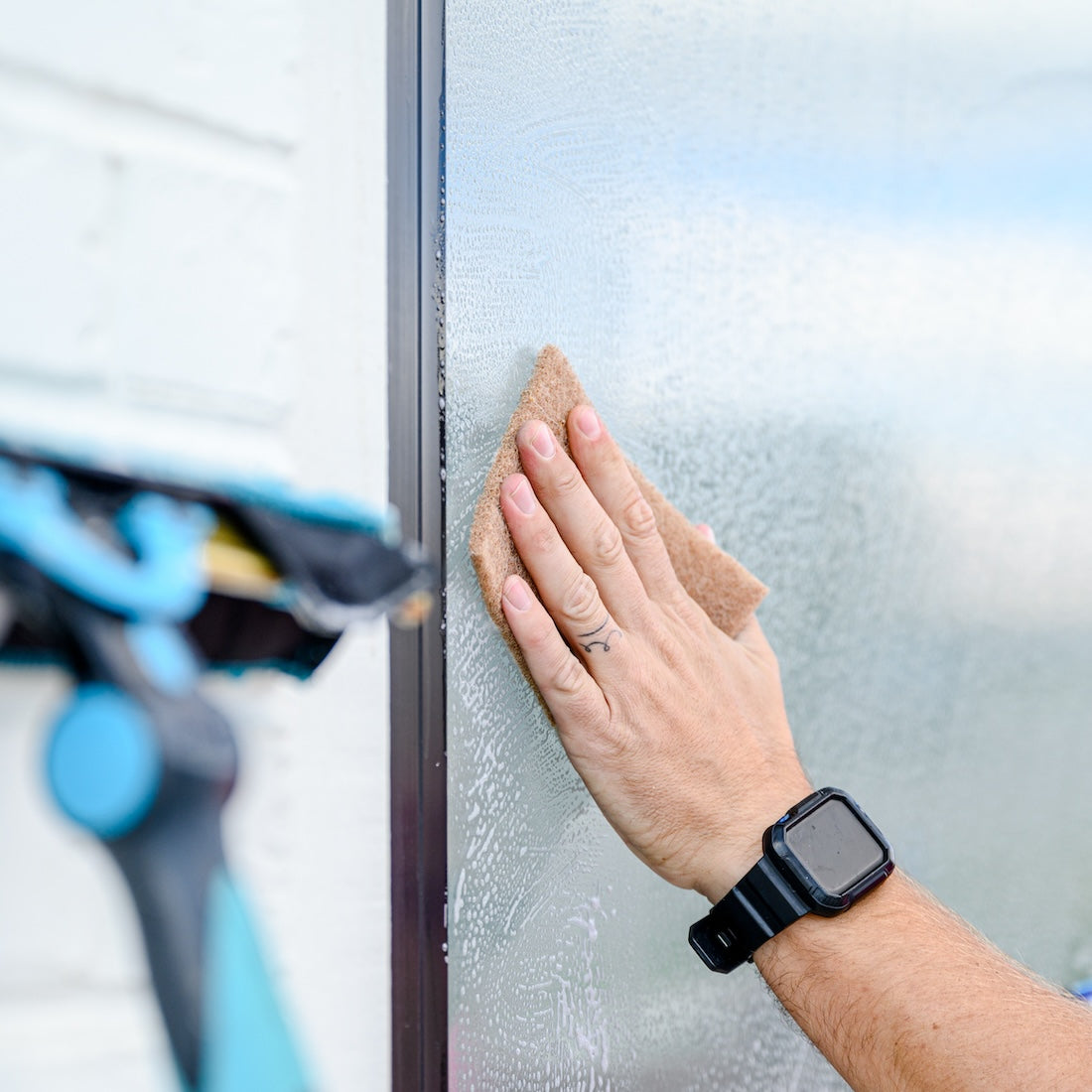
Scrubbing Away Questions About Window Cleaning Pads
When it comes to really dirty glass, you’re going to need a lot more than your T-bar and scrubber sleeve to get things done. That’s where window cleaning pads and abrasives come into play. These little guys are great for getting rid of the most stubborn debris. When used correctly, the abrasive power of window cleaning pads will be just enough to break down grime but not enough to scratch glass. Let's dive into what these pads are all about and how to use them effectively without risking damage to your glass.
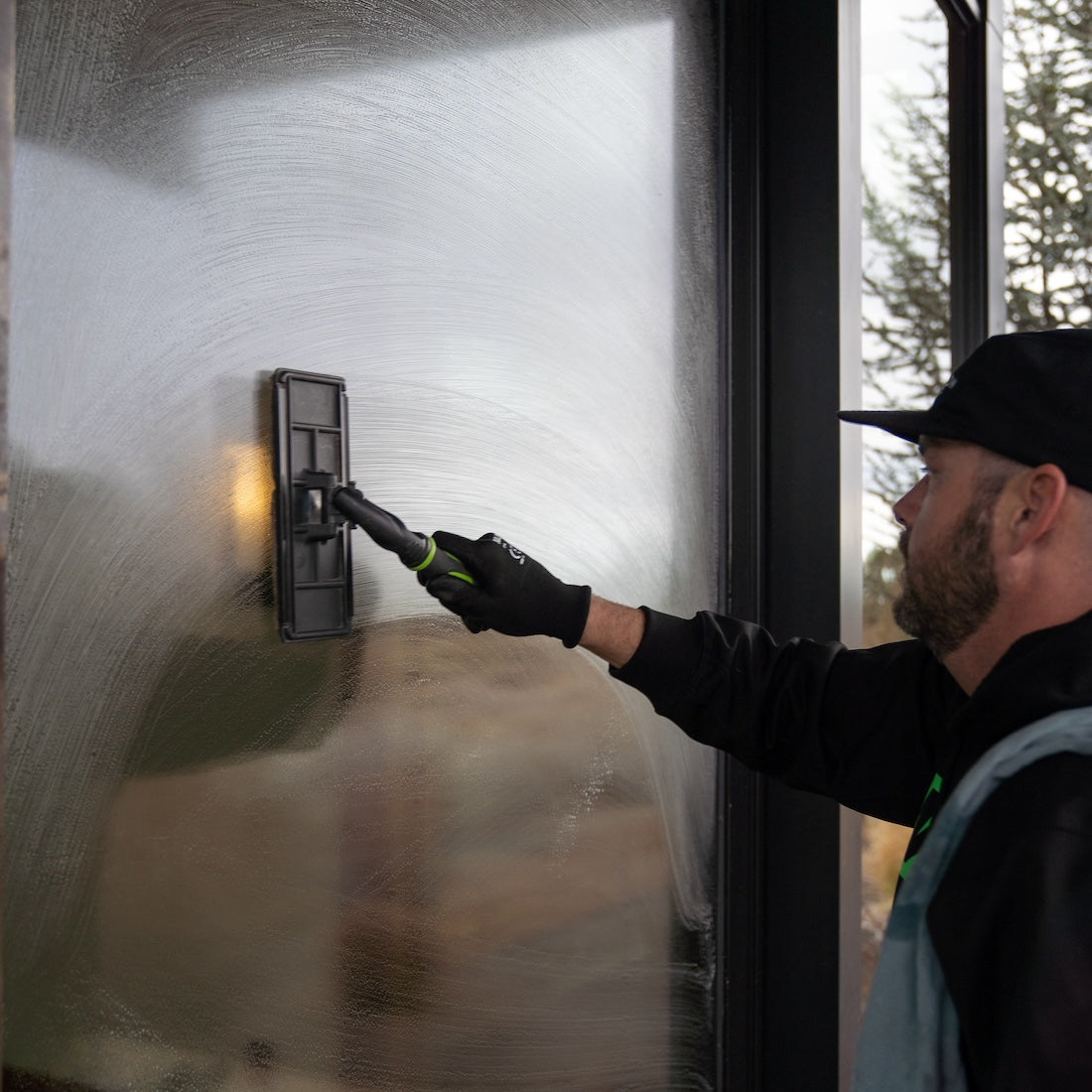
What Role Do Window Cleaning Abrasives Play in Window Cleaning?
Think of window cleaning abrasives as calling in backup for tricky situations. They swoop in when you've got tough, stubborn grime that your T-bar and scrubber alone don’t stand a chance against. Abrasives and pads level up your scrubbing power so you can get the most out of your cleaning efforts and achieve the best results. What's cool about abrasives is that they can be used in so many different ways. You can use pads by themselves or attach them to a pad holder for hand-held use and to put onto a pole. Regardless, these pads are all about giving you that extra cleaning oomph to get your windows sparkling by being abrasive enough to break down debris without breaking down the glass and causing damage. Whether it is hard water, bird droppings, or thick fingerprints, your window cleaning pads are going to save you a lot of elbow grease and time.
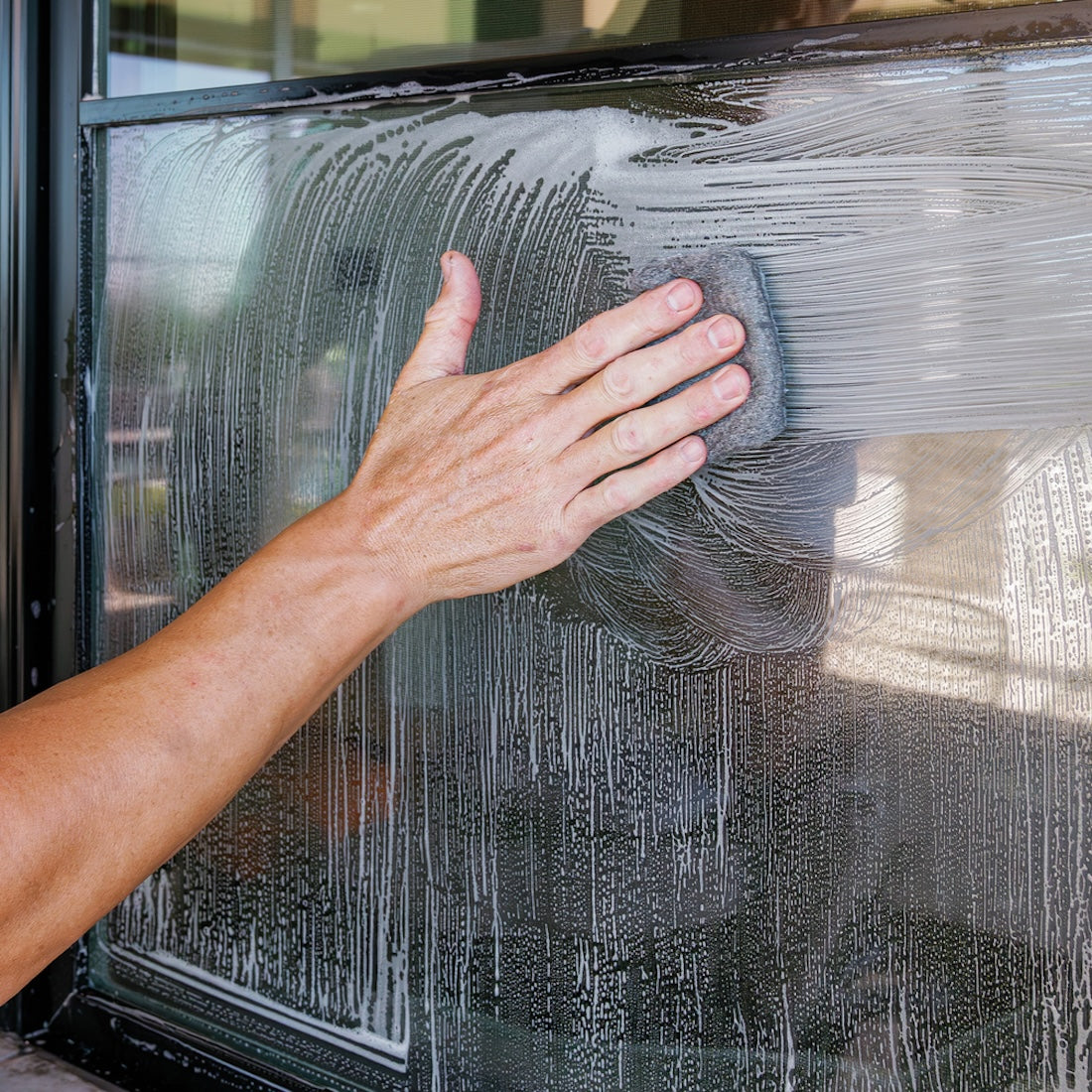
Will scrubbing pads scratch tinted windows?
Although designed with window cleaning in mind, glass with special coatings or tint films may not be suitable for scrubbing pads because they are more prone to scratching. With that being said, be sure to identify the make and model of windows you’re cleaning as well as the product specification of your cleaning pad of choice to ensure compatibility. The last thing anyone needs is to make glass worse after a failed attempt to clean it. With that being said, when in doubt, always test things out in a small, inconspicuous area.
Unsure about when to use a window cleaning pad? It's all about picking your battles. Do you have some gunk that won't budge with the usual T-bar scrub and squeegee? That's your cue for the window cleaning pad. But wait, are they safe for all surfaces?
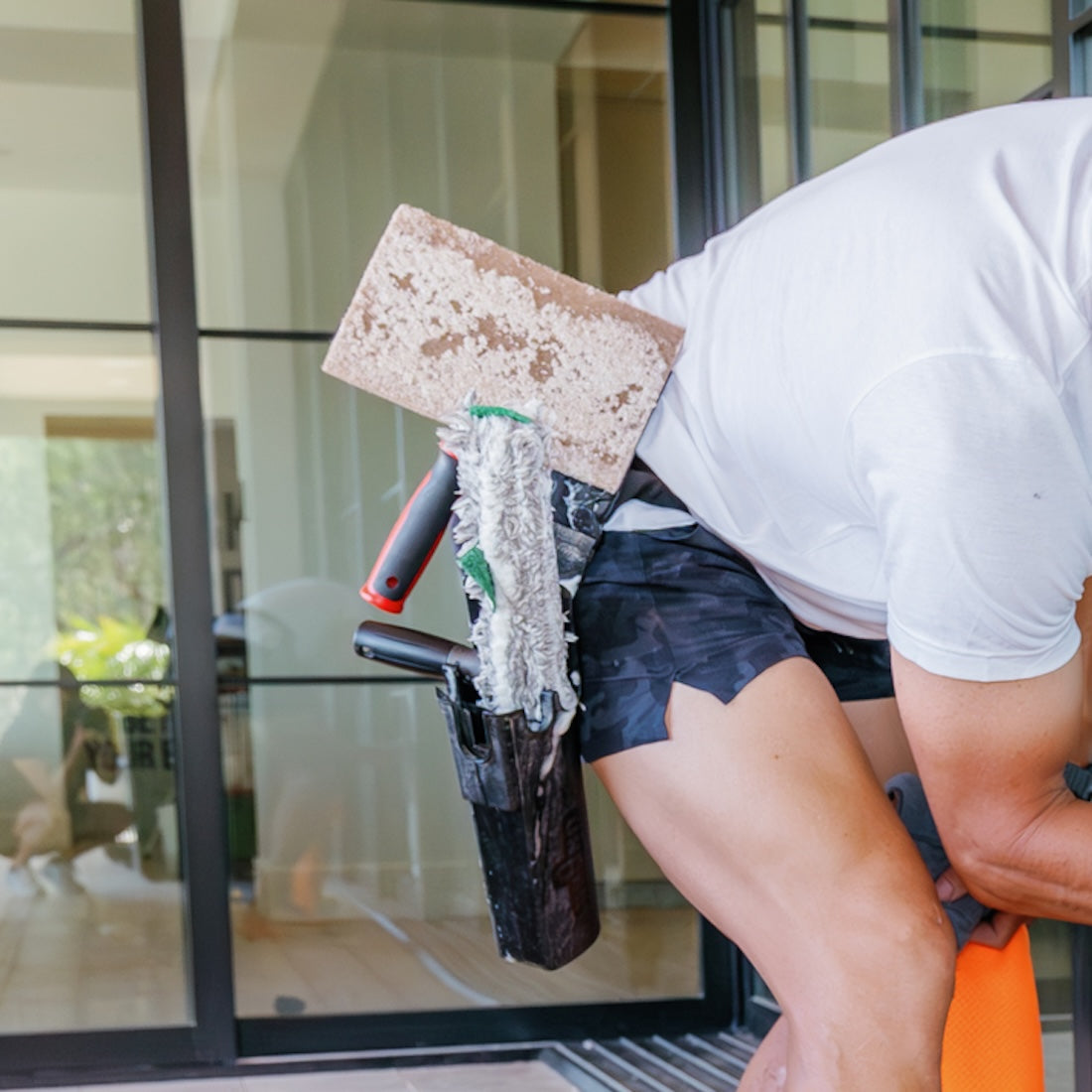
Types Of Window Cleaning Abrasives?
There’s a whole lineup of these abrasives. You've got everything from light to moderate to aggressive levels of abrasiveness. Gentle ones like the XERO White Scrub Pad are great for tackling lighter debris such as fingerprints. The tougher guys, such as the World Enterprises Copper products, come in handy when you’re dealing with trickier things like paint overspray. The type of material window cleaning abrasives are made from is the biggest influence on scrubbing power. Material options primarily include steel wool, copper, nylon, microfiber, melamine, and more. Steel wool is a classic abrasive on the stronger side of things, cherished for its performance and affordability. The con? Unfortunately, steel wool will rust unlike your other window cleaning pads made from different materials. Also, something to keep in mind, many abrasives are designed to be used with an abrasive holder to make things more comfortable so be sure to check product specifications to ensure compatibility.

Difference between a Window cleaning abrasive pad and a window cleaning sponge?
Window cleaning pads and sponges are somewhat related but best suited for different tasks. Cleaning pads have more scrubbing power so they are your go-to for targeted cleaning on those pesky spots. Sponges? They’re more about soaking things up and getting sudsy. Pads are for powerful scrubbing; sponges are for wiping and gently applying solution. A window cleaning pad is arguably most similar to your T-Bar and scrubber but with more abrasive power.
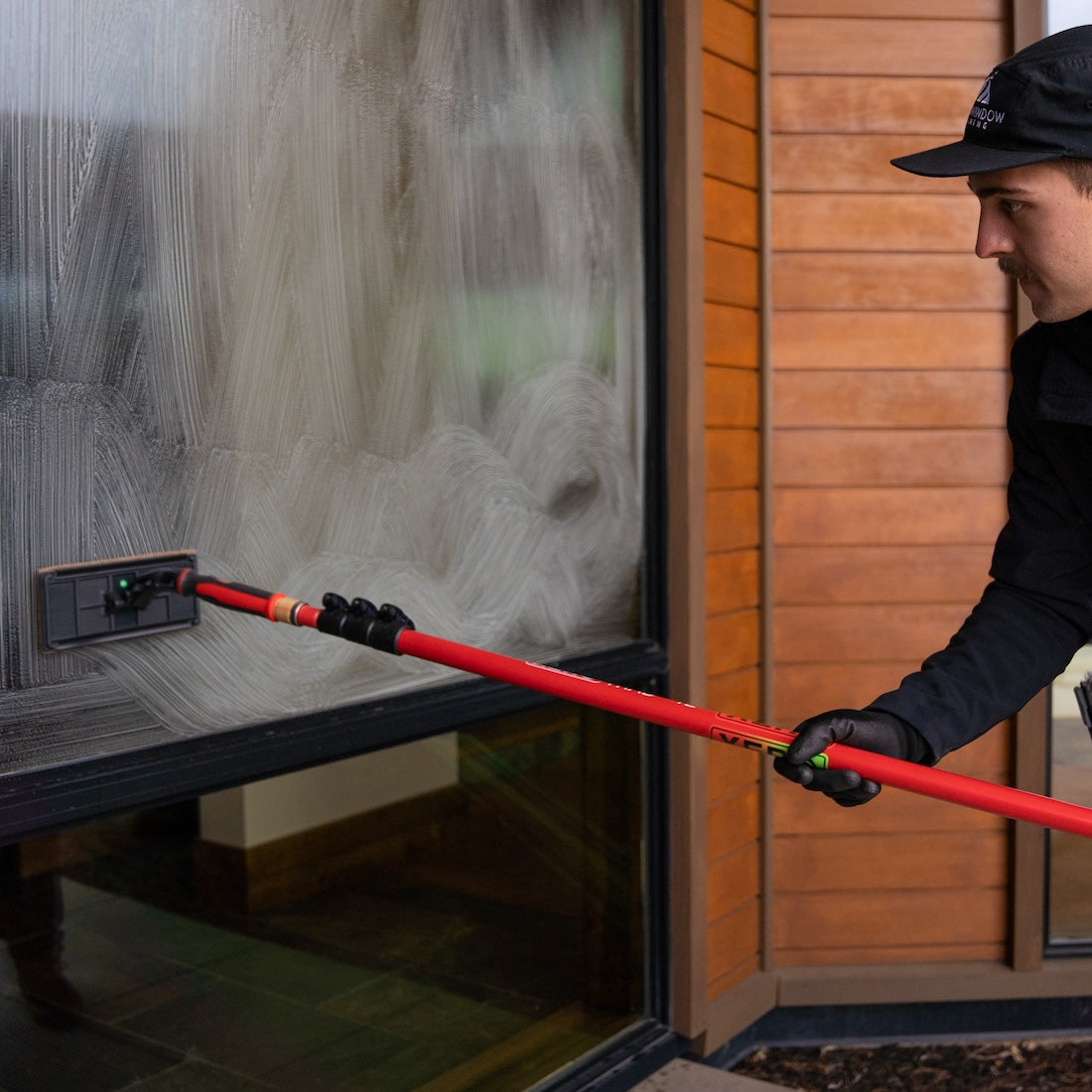
How to maintain your window cleaning abrasives?
Getting in the habit of regularly inspecting the condition of your abrasive tools before and after a job can go a long way in maximizing their effectiveness and longevity. You will likely be able to get multiple uses out of most of your window cleaning pads. To do so, keep things simple by giving them a good rinse after each use to kick out all the dirt. This ensures you aren't rubbing sharp debris against delicate glass. If you’re worried about putting your lightly used abrasives back into storage, a quick wash in diluted bleach can eliminate odors and keep things fresh. It's best to let your window cleaning pads air dry on a flat surface before they’re ready to fight another day. When it comes to abrasives like steel wool, they’re going to rust very quickly so it might be best to throw out what you’ve used at the end of the day rather than storing it. As for storage, keep them in a dry, cool place away from the elements. Most importantly, if you can see the fibers of your window cleaning pad or abrasive are breaking down and performance dwindles, it’s time to toss it and break out the replacement.

How to use steel wool on windows?
Steel wool on windows might sound like a recipe for disaster, but it is a tried and true remedy adored by window cleaners worldwide. Using the super fine stuff, grade 0000 only, can feel like magic for getting rid of those hard-to-get spots without leaving a scratch. It’s always best to start by applying your favorite window cleaning solution to act as a lubricant for your steel wool. This will minimize friction and reduce the potential for damage. Once your cleaning solution is applied, take your steel wool and scrub thoroughly. It can be hard to see leftover debris on wet windows so feel the wet glass with your fingertips to see if you can feel any grime left behind, if so, keep scrubbing! Once you have agitated and broken down all of the window gunk, it is time to squeegee your window to reveal the streak-free shine you’ve been working towards. Keep in mind that steel wool fibers break down very easily and are also prone to rusting so you will likely only get one good day of use out of a piece of steel wool. With that being said, make sure to discard your steel wool sooner rather than later and stock up with some new stuff so you’re prepared for the next window.
There you have it, window cleaning pads and abrasives are pretty much a must-have if you’re serious about getting your windows to glisten without breaking a sweat. Just remember to choose the right tool for the job, treat those tinted windows with care, and keep everything clean and safely stored for next time.





